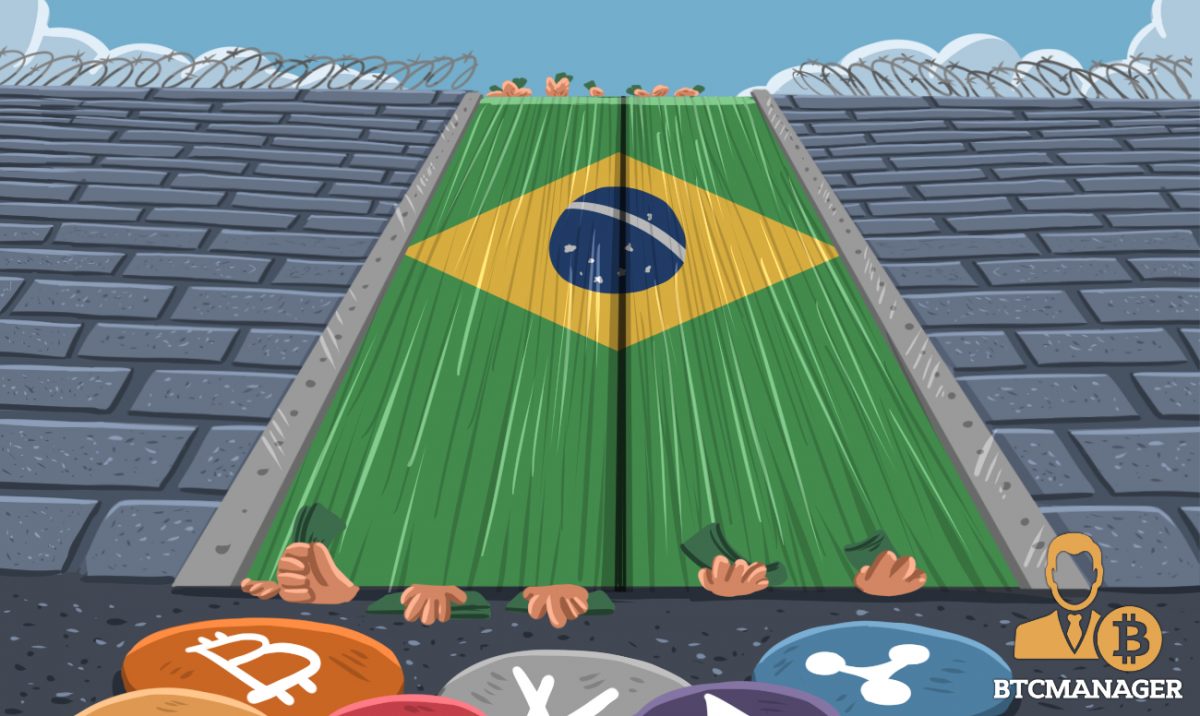Banks are Turning their Backs on Crypto Exchanges in Brazil

Crypto exchanges in Brazil are having rough times as many banks have started to close their doors on them. But, they’re not going down without a fight.
String of Difficulties
The country’s most prominent cryptocurrency exchange, Mercado Bitcoin, saw its accounts closed at several banking institutions. The company recently filed a lawsuit to maintain its account in Santander, one of the exchange’s financial partners.
The bank is the third private group to annul financial services to Mercado, a move that makes its business model and others in the market unfeasible.
First, in 2015, Itaú began working closely with the crypto platform, which earned Mercado more than one million customers. Once the relationship was terminated by Itaú, the latter lanced legal action which quickly reached the Superior Court of Justice. The judicial body decided in favor of the bank, however.
The bitcoin platform then turned to another bank, Bradesco, which promptly declined to open an account for the company. Now, Mercado Bitcoin faces an uphill battle as it tries to find yet another alternative.
Philosophical rather than Institutional
Throughout the process, however, representatives have argued that the financial blockade is “retaliation for a new market that is emerging,” because the use of bitcoin can significantly reduce a bank’s profits margin.
On December 4, 2017, Santander informed Mercado Bitcoin that its accounts would be closed in 30 days. The exchange then filed yet another lawsuit with the court who ruled in a preliminary decision that the deadline of 30 days should be extended to 90 days. Since then there has been no reaction from the bank.
For lawyers specialized in the subject, the dispute is a sign of the profound transformation taking over financial sectors. Luciana França Zylberberg, from the CNSLZ Lawyer’s office, estimates that if banks close their doors to digital currencies, they may severely stifle these companies:
“There is a serious risk of Bitcoin’s trading in Brazil [becoming] unfeasible. The use of banks as a means of operation is huge. The bank is a crucial instrument that allows us to financially move around. Without them, the operation may die.”
According to Mercado Bitcoin, Santander argued that it saw no “commercial interest” when it justified closing the account. Folha, one of the most well-known Brazilian news agencies, has reported that banks are also under the impression that part of the money is generated illicitly.
According to a resolution from the National Monetary Council, banks can close accounts as long as they state the reasons and make arrangements well in advance so as funds can be transferred.
The lawyer Fábio Braga stated:
“The bank has autonomy to close the account since it needs to watch over the origin of the money, and it must close the relationship if there is evidence of fraudulent use.”
According to Braga, the institution can be held criminally liable if there is an unjustified movement in client accounts. But if the end of the contract is considered unfounded, the bank would have to compensate for the damages caused.
Leonardo Cotta Pereira from Siqueira Castro Attorney’s says;
“The bank is not saying there was money laundering; it’s just a clue, but enough to close the account.”
Other Crypto Exchanges in the Country
Mercado Bitcoin was not the only one with similar problems. In July 2017, CoinBR, the third biggest crypto exchange in the country, currently with 120,000 clients, has also seen its accounts closed by Bradesco, Sicredi, Itaú and Santander. Rocelo Lopes, the founder of CoinBR explains:
“We have accounts at several banks, so the customer does not need to pay a fee to transfer money. Closing accounts disturbs the customer’s life. We’ve had cases of people who lost money and had to repay.”
CoinBR filed a lawsuit against Itaú and Bradesco. A decision from the country’s Superior Court determined that Itaú would keep the broker’s account open.
According to Rocelo Lopes, many of the exchange users saw their accounts closed as well, indicating that the bank seems to be going after anyone who deals with bitcoin. The exchange then implemented an alternative payment method that only exists in Brazil, called Boleto Bancário so that users could fund their accounts.
Foxbit, the second biggest crypto exchange in the country, now with over 400,000 customers, was notified in August 2017 by Banco do Brasil that it would have its account and that of its partners closed. In September, the exchange also filed a lawsuit against the bank.
So far the banks have declined to comment on this situation.
Suspicious Activity
Both banks and crypto exchanges have an obligation to report any suspicious transactions that indicate money laundering or other illicit activities to the Financial Activities Control Board.
According to legal officials, if the bank is punished, the penalty is proportional to the volume of operations. So the fine can be far higher than the bank’s return on keeping these customers, and that is why banks are considering turning their back on the cryptocurrency industry.














